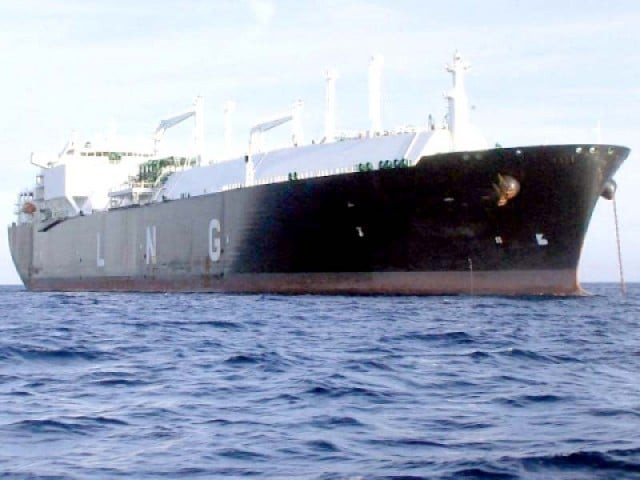More oil, gas terminals being built at Port Qasim
PQA also establishing second ship navigation channel

PQA also establishing second ship navigation channel.
PHOTO: FILE
“We are working to develop another natural ship navigation channel,” Port Qasim Authority (PQA) Chairman Asad Rafi Chandna told a group of journalists during a visit to the Pakistan International Bulk Terminal Limited (PIBTL) on Tuesday.
This would be the second, but a natural, navigation channel from the outer anchor in the open sea towards import and export terminals located at Port Qasim. “You will see significant developments taking place in the next four to six months,” he said.
Besides, the establishment of other terminals for the facilitation of importers and exporters was also in the pipeline including a terminal for oil import, he said.
Pakistan heavily relies on imported energy - petroleum oil and fuel gases - to run the economy. According to estimates, it meets around 70% of energy needs through imports.
Energy imports comprise around one-fourth of the total import bill of the country.
Pakistan imported energy fuels worth $5.17 billion, which was over 27% of total imports of $19.04 billion in first four months (July-October) of the current fiscal year, according to the Pakistan Bureau of Statistics.
At present, Port Qasim has 12 import and export terminals for coal, refined petroleum products, liquefied petroleum gas (LPG), liquefied natural gas (LNG) and other bulk and containerised terminals.
New developments will help the country meet growing demand for imports and exports in the near future as anticipated expansion in the economy over the next two to three years will require extensive infrastructure.
LPG import terminal
PIBTL - the only authorised terminal in the country to facilitate commercial coal importers - has initiated the process of adding the LPG import facility at Port Qasim.
Industries without treatment plants will be sealed, warns judicial commission
“The board of directors gave the go-ahead for developing the project in the near past,” PIBTL CEO Sharique Azim Siddiqui replied in response to a query. “The project is estimated to cost around $30 million,” he said.
They have sought PQA’s approval. International Finance Corporation (IFC), an investment arm of the World Bank Group, has 10-11% shareholding in PIBTL.
The private bulk terminal operator, which has also developed a facility for export of cement and clinker, will establish the LPG import infrastructure in collaboration with JS Petroleum, it has been learnt. Siddiqui pointed out that they were transporting coal through roads at present but plans are under way to dispatch the dirty fuel via cargo trains to upcountry.
The two firms have targeted to establish the facility before next winter as LPG remains an important fuel for the domestic users who have no pipeline gas facility and its demand goes up exponentially during cold weather.
Dock workers’ demand PQA, Chinese company to guarantee their rights
LNG import terminals
At least, two consortia are working to establish more LNG import terminals at the seaport to meet high demand in the near future.
Engro Corporation, which built the first LNG terminal in 2015, is working on plans to add one more terminal of 4.5 million tons per year in 2019, in collaboration with Royal Dutch Shell, the Fatima Group and trading house Gunvor.
Energas LNG Terminal Private Limited is also in the race to establish LNG import infrastructure at Port Qasim with the capacity of six million tons per year. It is awaiting the allocation of a suitable site at Port Qasim.
Energas LNG is a consortium of gas buyers in the private sector comprising Younus Brothers, the Sapphire Group and Halmore Power.
Published in The Express Tribune, December 12th, 2018.
Like Business on Facebook, follow @TribuneBiz on Twitter to stay informed and join in the conversation.



















COMMENTS (1)
Comments are moderated and generally will be posted if they are on-topic and not abusive.
For more information, please see our Comments FAQ